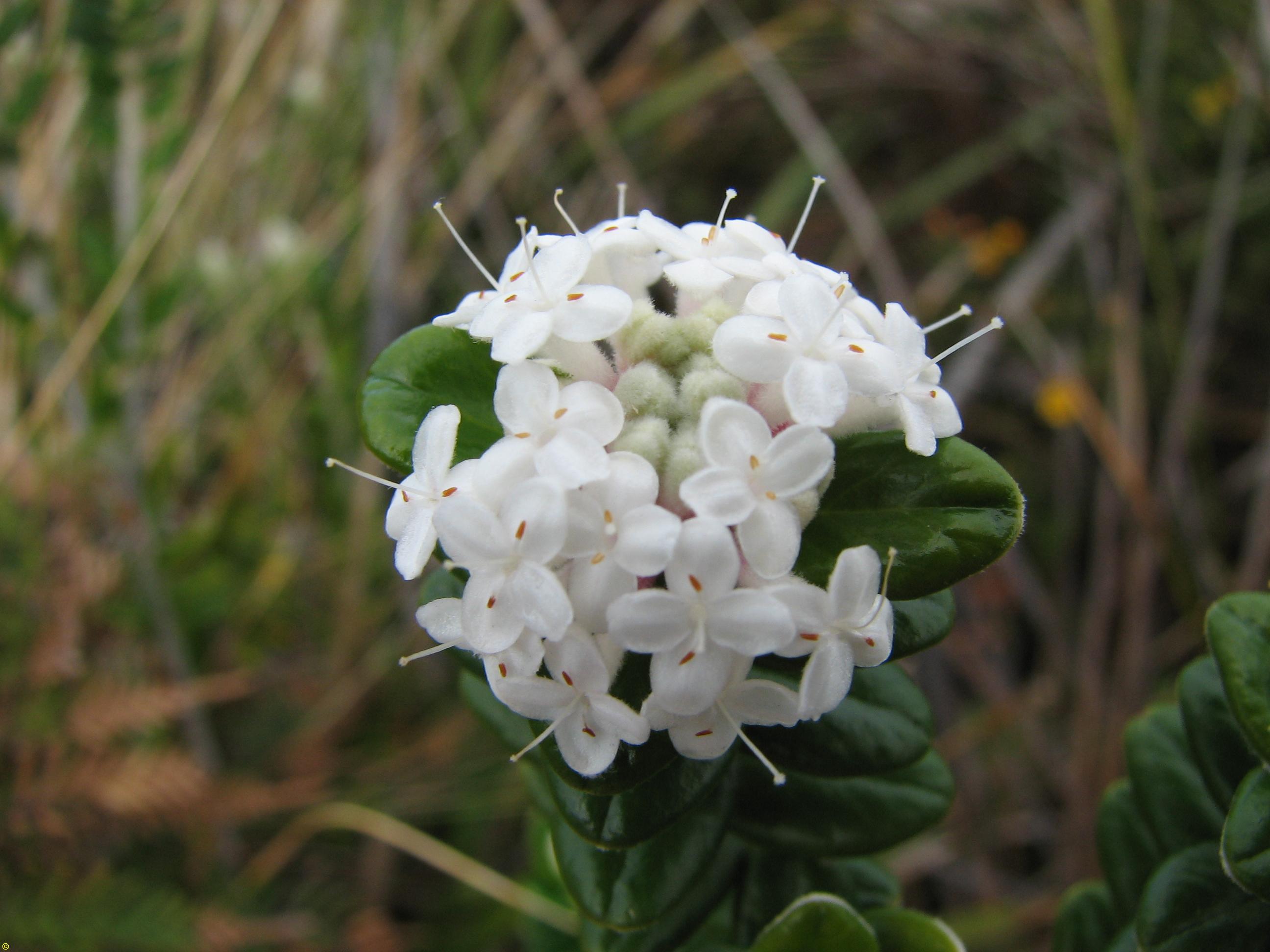Scientific Name: Pimelea nivea Endemic Having a natural distribution confined to a particular geographic region
Common Name: bushmans bootlace
Family Classification (Clade): Eudicots
Family: Thymelaeaceae
Form Description: Shrub, slender leafy branches. Leaves dark green, shining, surface glabrous, abaxial surface densely white.
Height (m): 0.6 – 2
Flowers: 10 or more white or pinkish heads of flowers at ends of main branches. Tubular.
Fruit: Drupe – dry, surrounded by long hairs.
Municipality
Plant Communities
Habitat Notes
Common and widespread on rocky hillsides to 1000m.
Site Tolerance
Dry, Exposed, Rocky, Windy
Soil Tolerance
Clay, Fertile, Loam, Nutrient-poor, Well-drained
General Notes
Bird attracting. Attracts butterflies. Resistant to Phytophthora cinnamomi. Traditional Palawa use: the bark was used for string.
Propagation Calendar
-
Flowering Month
Jan Feb Mar Apr May Jun Jul Aug Sep Oct Nov Dec -
Seed Collecting Month
Jan Feb Mar Apr May Jun Jul Aug Sep Oct Nov Dec -
Sowing Month
Jan Feb Mar Apr May Jun Jul Aug Sep Oct Nov Dec -
Cutting Month
Jan Feb Mar Apr May Jun Jul Aug Sep Oct Nov Dec
Propagation Method
Seed Information
Seed Collection
Very difficult to grow from seed. Seed releases very quickly once ripe especially during hot weather. Leave to mature in warm place. Rub over screen to remove covering.
Seed Treatment Method
Smoke Smoke treatment improves germination in some species. Smokey products, e.g. smokey vermiculite, can be purchased and applied to the sown seed, or sown seeds can be treated directly with smoke from a source such as a drum with a fire and hose.
Seed Treatment Notes
Smoke treatment has improved results slightly for some species. Some success has also been reported with burning of small twigs and leaf litter on top of seed; results erratic. May respond to combination of heat and smoke.
Cutting & Division Information
Usually grown from cuttings. Care should be taken not to strip back the young bark. Slow to strike.
